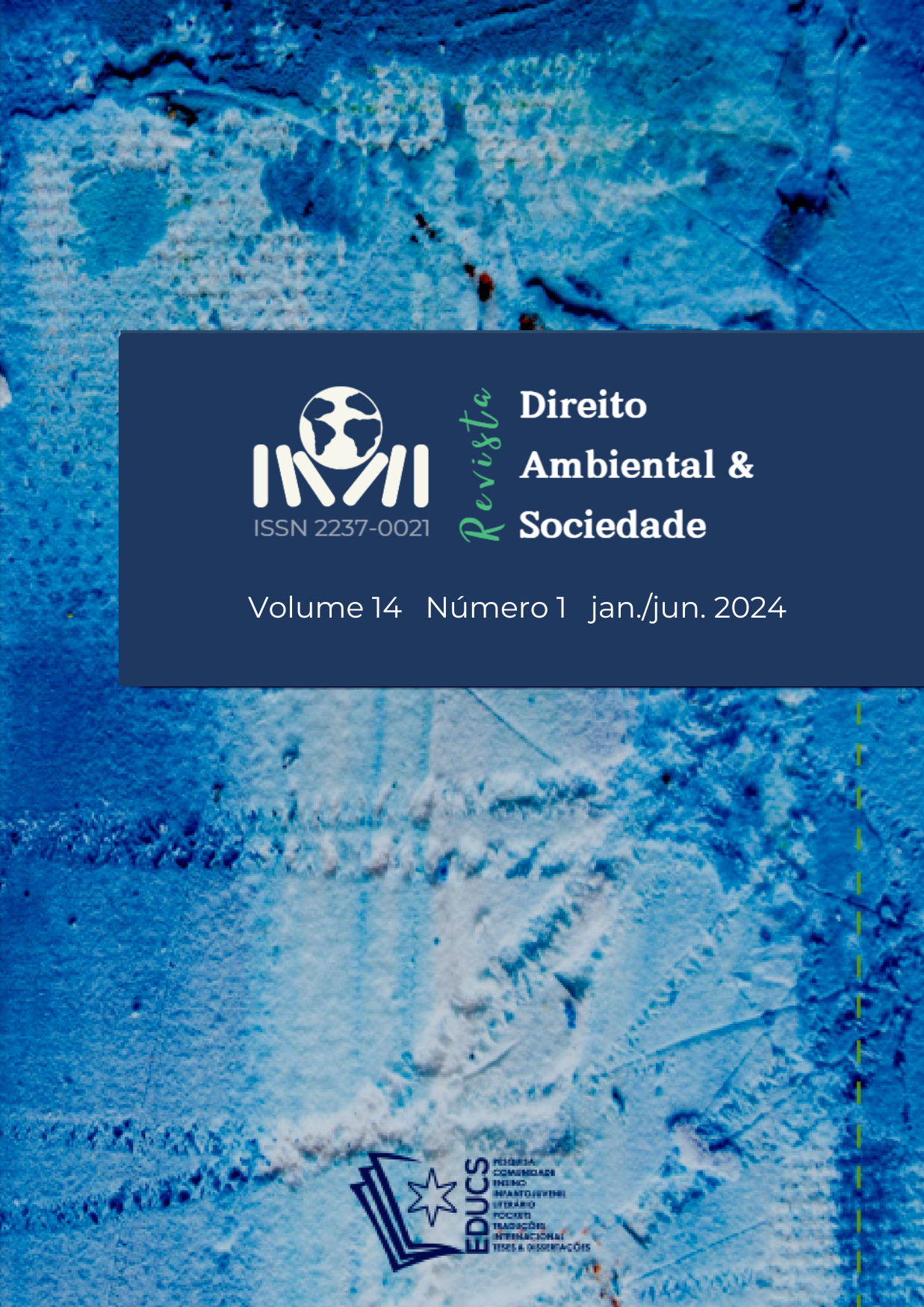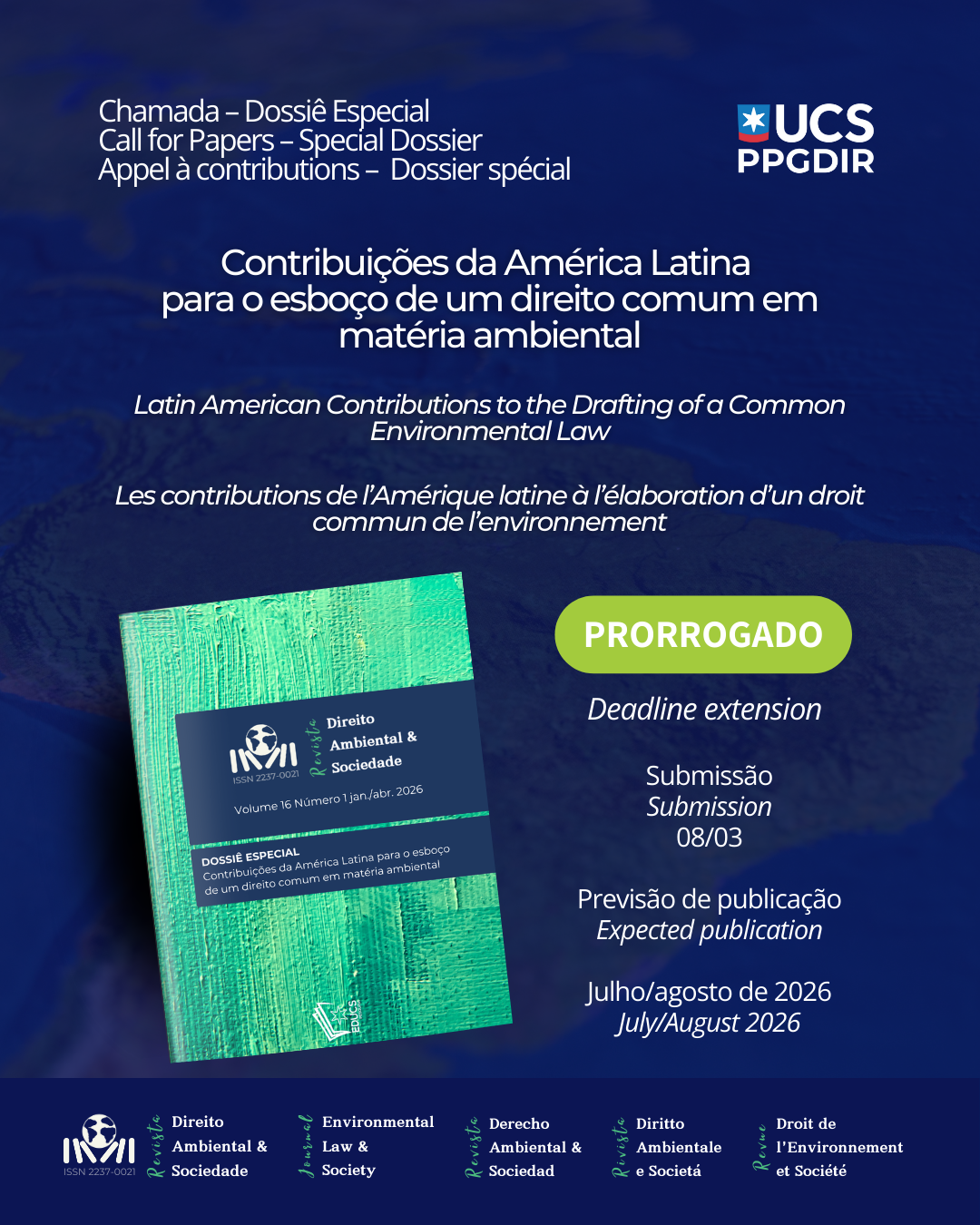Brazilian environmental law and Federal Supreme Court decisions in the crisis context of the Democratic State of Law
DOI:
https://doi.org/10.18226/22370021.v14.n1.12Keywords:
court decisions, DemocracyAbstract
The effectiveness of Environmental Law is one of the great challenges in the context of the crisis of the Democratic States of Law. It is essential to establish limits in the relationship between human beings and nature to guarantee the survival and quality of life of all living beings, carried out through legal norms established from the Federal Constitution of 1988, in Brazil. This article aims to identify possible advances that occur in the processes of production of legal norms and in the application of environmental law, with reference to decisions issued by the Federal Supreme Court - STF. It starts from two premises: the importance of standardization of environmental law and the need to enforce positive norms. The crisis of democracies is, in this sense, a relevant context to be considered. It is necessary to understand the functioning and disputes within States and institutions as a way to advance in the regulation of environmental issues and in guaranteeing their compliance. Through a bibliographical research on the crisis of modern democracies and the analysis of decisions handed down by the STF, some challenges generated for the effectiveness of the norms of environmental law are identified, noting that advances have occurred, albeit in an incipient way.
Downloads
References
c
Downloads
Published
How to Cite
Issue
Section
License
Copyright (c) 2024 Journal of Environmental Law and Society

This work is licensed under a Creative Commons Attribution 4.0 International License.
Você tem o direito de:
Compartilhar — copiar e redistribuir o material em qualquer suporte ou formato para qualquer fim, mesmo que comercial.
Adaptar — remixar, transformar, e criar a partir do material para qualquer fim, mesmo que comercial.
O licenciante não pode revogar estes direitos desde que você respeite os termos da licença.
De acordo com os termos seguintes:
Atribuição — Você deve dar o crédito apropriado , prover um link para a licença e indicar se mudanças foram feitas . Você deve fazê-lo em qualquer circunstância razoável, mas de nenhuma maneira que sugira que o licenciante apoia você ou o seu uso.
Sem restrições adicionais — Você não pode aplicar termos jurídicos ou medidas de caráter tecnológico que restrinjam legalmente outros de fazerem algo que a licença permita.
Avisos:
Você não tem de cumprir com os termos da licença relativamente a elementos do material que estejam no domínio público ou cuja utilização seja permitida por uma exceção ou limitação que seja aplicável.
Não são dadas quaisquer garantias. A licença pode não lhe dar todas as autorizações necessárias para o uso pretendido. Por exemplo, outros direitos, tais como direitos de imagem, de privacidade ou direitos morais , podem limitar o uso do material.














